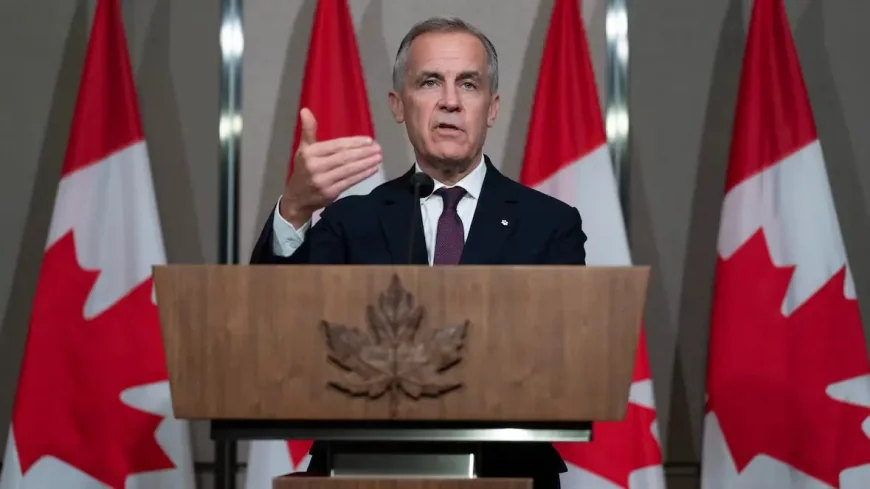Can the federal budget revive Canada's economy?
By almost every measure, Canada's economy is stuck in a ditch. Growth has faltered. The unemployment rate is rising.

In normal times, the solution is obvious. The Bank of Canada cuts interest rates, and the federal government increases spending to help businesses and households recover from the crisis.
These are certainly not normal times.
And Bank of Canada Governor Tiff Macklem knows it.
"The structural damage caused by tariffs is reducing our productive capacity and raising costs. This limits the ability of monetary policy to stimulate demand and keep inflation low," Macklem said last week.
He argues that lowering interest rates won't achieve much. And in this unique and unusual period for the Canadian economy, he argues that even monetary policy has its limits.
He said, "It can't target specific sectors. It can't target the hardest-hit sectors: aluminum, steel, auto. It can't help companies find new markets. It can't help companies reorganize their supply chains. It can only try to mitigate the impact of the hardest-hit sectors on the rest of the economy."
This statement has a clear message. Not just for Canadians struggling to stay afloat during these difficult times. Economists say Macklem is sending an important signal to the federal government.
"The Bank seems to believe it has done its best and is now handing the reins to the federal government to support the economy through fiscal policy," says David-Alexandre Brassard, chief economist at the Canadian Chartered Professional Accountants.
This fiscal policy will be unveiled on Tuesday.
Desjardins' deputy chief economist, Randall Bartlett, says the budget itself will be unprecedented.
"It has been unprecedented not only in terms of delays, but also in terms of planned spending, tax cuts, and savings. The deficit could rise to levels not seen in decades, except during a recession or pandemic, and the debt-to-GDP ratio could move in the wrong direction," Bartlett wrote in a budget preview last month.
• Sign up for Peter Armstrong's weekly newsletter here
• Canada's economy contracted by 0.3% in August
Obviously, the question is whether the budget can do what the Bank of Canada cannot.
"Of course it can," says Benjamin Reitzes, managing director of BMO Economics.
He says it's clear the Bank of Canada has done what it can easily do. Now, he says, attention is focused on the federal budget.
"They're handing over the reins to the fiscal authorities, which in this case is the federal government. Let's see what happens in this budget. I think there's a lot of optimism about potential new measures to boost growth," Reitzes said.
Stimulating growth is the heart of the matter.
Growth has been an issue for years. Long before Donald Trump returned to the Oval Office, and before US tariffs did so much damage, Canada struggled to attract investment and boost economic growth.
Per capita GDP declined dramatically. Between 2014 and 2022, Canada's average growth rate was the third lowest among OECD countries.
Reitzes says that above all, this week's budget is an opportunity to reset Canada's economic priorities.
"Now is the time to look at the economy and economic growth differently than we have in the past few years and focus on Canada's expansion more than anything else," Reitzes said.
Therefore, spending is crucial. Canada has promised billions of dollars in new defense spending. It has already earmarked billions for the Major Projects Office and the diversification of trade corridors.
But every budget is a mix of accounting and storytelling.
Statistics say one thing, the text of the document sometimes tells a different story. Reitzes says the challenge in this week's budget will be ensuring that everyone, from Canadian workers and businesses to pension funds and investors around the world, receives a clear message from the government.
"We are ready to grow the economy, we are focused on what Canadians need to live better lives, and these priorities are no longer the same as they were in the last 10 years," Reitzes said.

What's Your Reaction?
 Like
1
Like
1
 Dislike
0
Dislike
0
 Love
1
Love
1
 Funny
0
Funny
0
 Angry
0
Angry
0
 Sad
0
Sad
0
 Wow
1
Wow
1











































